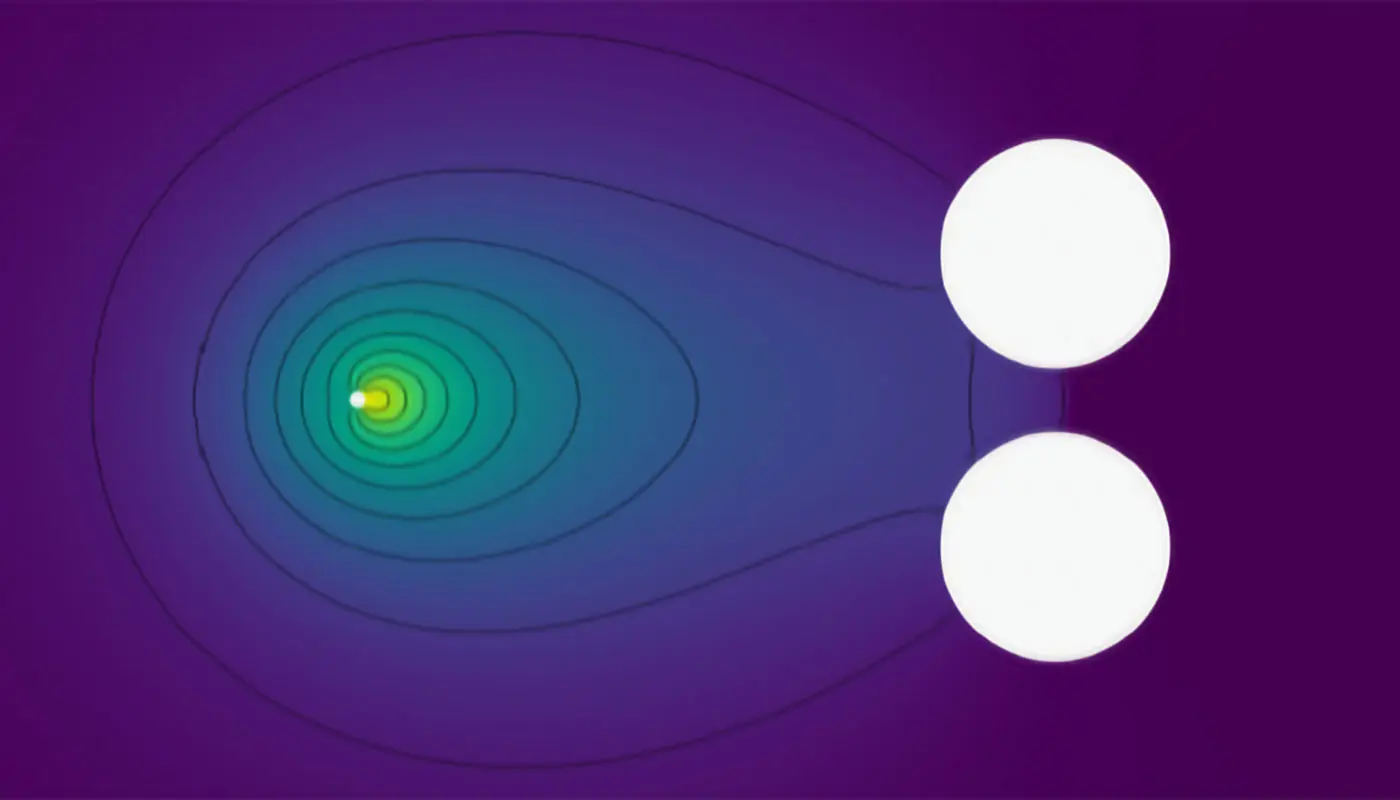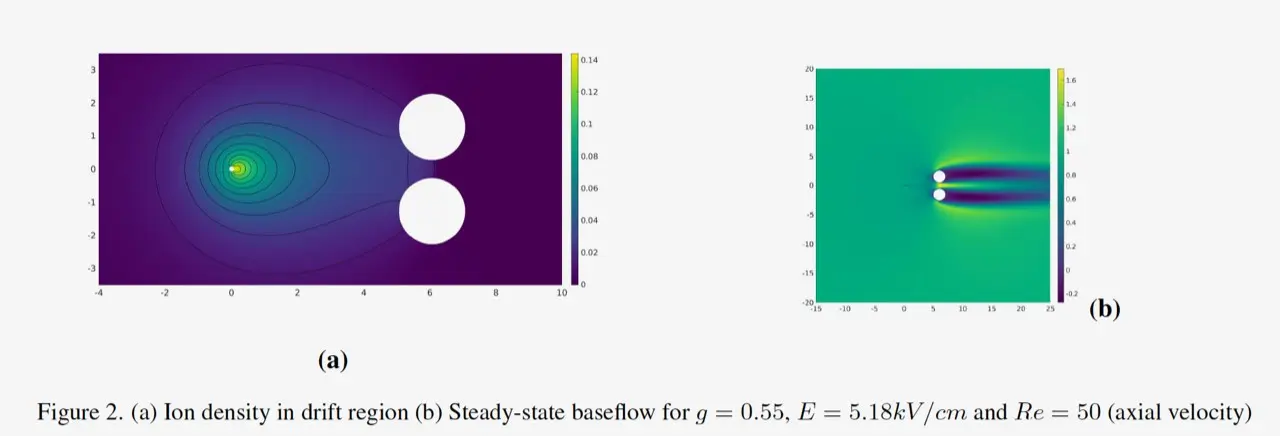NUMERICAL SIMULATIONS OF FLOWS INDUCED BY PLASMA CORONA DISCHARGE

PhDAER Seminar Tuesday, April 23, 2024, at 16:00 - Dipartimento di Scienze e Tecnologie Aerospaziali, Politecnico di Milano, Sala Consiglio DAER, Second Floor, Campus Bovisa, Via La Masa, 34, Milano (MI)
Ionic wind propulsion for flying vehicles is a solution with many advantages, including simplicity of the design without moving parts, almost silent and environmental friendly.
It is a well-established solution for thrust in spatial applications, but applications in atmospheric conditions are less advanced.
It this talk, we will focus on situations where the plasma is generated by corona discharge, which occurs when a high voltage is applied between a system of electrodes and the electric field is locally high enough to trigger Townsend’s avalanches ionizing the air in the vicinity of the emitter (smaller electrode).
We will discuss the difficulties encountered for the numerical simulations of this situation, present several simulation strategies, and illustrate with a number of results.
We start the simplest modeling in the simplest geometry, namely a single pair of electrodes; and use the simplest modelling in which the inonization process is modeled through an ad-hoc boundary condition (Kaptzov hypothesis), and considering that the advection of the charges is negligible compared to electrodrift (one-way coupling hypothesis).
We show that this simple approach accurately fits with experimental data in a number of case. We then consider a number of geometries, including multiple-electrodes and streamlined electrodes. Such configuration are found to enhance the thrust, although the increase is limited due to shielding between the electrodes if too close.
We finally discuss the difficulties encountered when one wants to fully resolve the corona discharge in the region close to the emitter electrode, and include advection of charges by fluid at high speed (two-way coupling), and present a number of results obtained in simple configurations.

Speaker:
David Fabre is an associate professor in Institut de Mécanique des Fluides de Toulouse (IMFT) since 2003. He is conducting research activities centered on instability phenomena in fluid mechanics, and on the development of numerical methods suited to these problems. His research topics comprise on the one hand fundamental problems chosen for their intrinsic beauty (zig-zagging path of rising bubbles, spiral or polygonal shape of vortices, whistling of a kettle...), and on the other hand problems of practical interest driven by industrial applications (reduction of wake vortex hazard, ionic wind propulsion, filling of gaseous hydrogen tanks, energy harvesting from currents and waves, ...).
Join the event online at the following link
Free admission, open to all members of the university community and the public, subject to availability.
19.04.2024